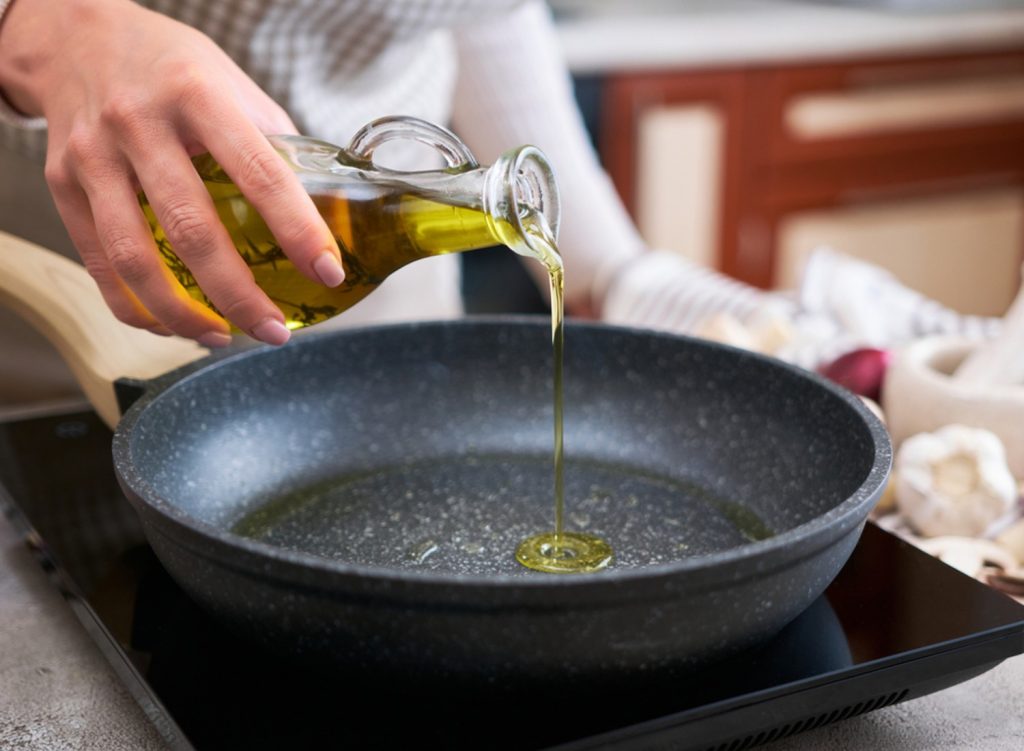Coconut Oil vs. Olive Oil: Which Is the Healthier Option?

In the quest for healthier cooking oils, choosing between coconut and olive oil has become a pivotal decision in modern nutrition discussions. These two oils, each with its unique characteristics and culinary allure, have sparked debates about their impact on health.
As we explore the nuanced world of coconut oil and olive oil, we aim to unravel the complexities surrounding their saturated fats, delve into the mysteries of medium-chain triglycerides and monounsaturated fats, and discuss the practicalities of smoke points in cooking. Join us on this journey to decipher which oil emerges as the healthier option, offering nourishment and a symphony of flavors in your culinary endeavors.
Coconut Oil: A Tropical Controversy
Derived from the meat of coconuts, coconut oil has a rich history in various cuisines. One of its distinctive characteristics is its high saturated fat content, a trait traditionally linked to an increased risk of heart disease. However, the debate takes an intriguing turn when considering the specific type of saturated fats present in coconut oil—medium-chain triglycerides (MCTs).
MCTs and Cholesterol Dynamics
Unlike their long-chain counterparts, MCTs are easily digestible and swiftly converted into energy by the body. Emerging research suggests that these MCTs may uniquely impact cholesterol levels, potentially increasing HDL cholesterol levels, commonly known as “good” cholesterol. Moreover, coconut oil boasts lauric acid, an antimicrobial fatty acid believed to fortify the immune system.
Olive Oil: The Mediterranean Elixir
A cornerstone of the Mediterranean diet, olive oil has long been celebrated for its potential health benefits. Rich in monounsaturated fats, olive oil is a heart-healthy option with proven cholesterol-lowering properties. The oil also packs a powerful antioxidant punch, containing Vitamin E and polyphenols that exhibit anti-inflammatory effects, contributing to overall cardiovascular well-being.
Monounsaturated Fats and Antioxidant Bounty
The monounsaturated fats in olive oil actively work to reduce LDL cholesterol levels while maintaining or elevating HDL cholesterol. The antioxidant profile of olive oil further positions it as a potential ally against inflammation, a key factor in heart disease and other chronic conditions.
Smoke Points: A Culinary Conundrum
Considering practicality in the kitchen, understanding the smoke points of these oils is crucial. Coconut oil boasts a relatively high smoke point, rendering it suitable for high-temperature cooking methods like frying. In contrast, extra virgin olive oil, with a lower smoke point, is better suited for sautéing and low to medium-heat cooking. However, refined olive oil or pure olive oil provides a higher smoke point, accommodating higher-temperature culinary techniques.
Oil Sprayers: A Contemporary Twist
Introducing oil sprayers into the cooking equation adds a contemporary twist to the debate. Whether using coconut oil or olive oil, these sprayers provide a controlled and efficient method of application, reducing the overall quantity of oil used in cooking. This innovative approach aligns with health-conscious culinary practices, allowing for the enjoyment of flavorful dishes while maintaining a mindful balance in oil consumption.
Caloric Considerations: Moderation Is Key
Both coconut and olive oil offer concentrated energy sources, emphasizing the importance of moderation in consumption. While these oils contribute essential fats to the diet, excessive calorie intake can lead to weight gain and other health concerns. Balancing portion sizes is fundamental to integrating these oils into a well-rounded and healthy diet.
The Decision-Making Dilemma: Coconut or Olive?
The choice between coconut oil and olive oil hinges on individual health objectives, culinary preferences, and cooking methods. Coconut oil may fit the bill if seeking an oil for high-temperature cooking with a tropical twist. Alternatively, olive oil might be the preferred choice if you prioritize heart health and relish a rich, fruity flavor.
Conclusion: A Symphony of Flavors
Both coconut oil and olive oil bring unique nutritional benefits to the table and can be part of a healthy diet when consumed in moderation. Tailoring your choice to specific cooking needs, taste preferences, and health priorities is essential. As in all aspects of nutrition, variety in oils ensures a diverse and enjoyable culinary experience. So, why not savor the best of both worlds, allowing coconut oil and olive oil to coexist in a symphony of flavors on your kitchen shelf?